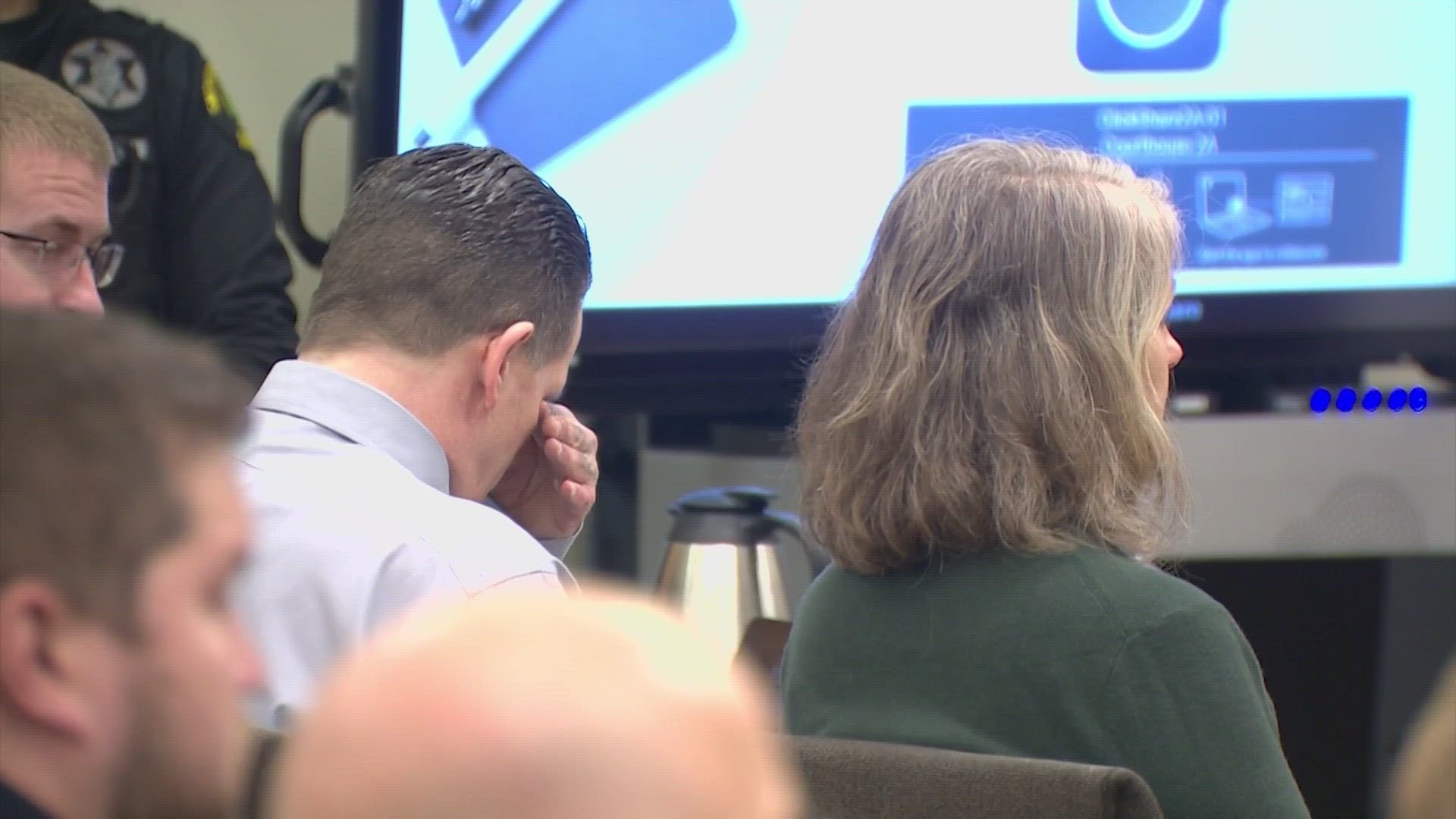EVERETT, Wash. — A jury found the man accused of killing an Everett police officer guilty on all charges on Monday morning.
Richard Rotter was convicted of aggravated first-degree murder in the killing of Everett police officer Dan Rocha in March 2022. Rotter could spend the rest of his life in prison without the possibility of parole, with sentencing scheduled for April 17.
Rotter was also charged with unlawful possession of a firearm in the second degree and possession of a controlled substance with intent to manufacture. The prosecution also added an additional charge of attempting to elude a police vehicle, for which he was also found guilty.
Everett Police Chief Dan Templeman released a statement Monday following news of Rotter's conviction.
“Today’s verdict comes with mixed feelings. While on one hand, I am pleased to see that the defendant will be held accountable for his actions to the fullest extent of the law, it still doesn’t bring Dan back, nor does it change the fact that his family lost a loving son, husband, brother and father.
I’d like to extend my deepest gratitude to the entire investigative team, and in particular lead detective, Kendra Conley with the Snohomish County Sheriff’s Office, as well as the prosecution team of Craig Matheson and Bob Langbehn, who have all spent the last year diligently preparing for this trial. I can never express my level of appreciation for them. Their tireless efforts and extreme competence secured a verdict in this case that brings justice to the family and our department members. They are among the finest public safety professionals I’ve had the honor to work with in my career."
Everett police officers filled rows in the courtroom as the judge read the jury's verdict.
"Obviously, the guilty verdict is what I was hoping for, it's what the family was hoping for, but it doesn't take away from the fact that no verdict is going to bring Officer Rocha back," Chief Templeman said in an interview following the verdict. "But it was at least an acknowledgement from the system and an acknowledgement from the jury that Mr. Rotter was guilty of the crimes as charged."
Chief Templeman thanked the community for sharing their support, noting that the legacy of Officer Rocha will live on.
"Really what I hope for is that we can lived in a world where that level of support is evident even when you don't have a police officer killed in the line of duty," Chief Templeman said.
A Snohomish County jury heard closing arguments on Friday in Rotter's trial.
The jury did not come to a verdict on Friday. The jury started deliberating around 1 p.m. on Friday and the judge decided at 4 p.m. to let the jury go home for the weekend due to the late time of day and technical issues with a DVD player.
Rotter planned to plead guilty to the crime at one point but changed his mind at the last minute.
The main focus on Friday, by both the defense and prosecution, was if the killing was premeditated. This was a main point in the testimony last week.
Rotter's cognitive capacity was central to his defense.
Rotter claimed to have a brain injury suffered in a car wreck in 1995 that put him in a coma for more than a week, along with multiple concussions from high school football and a head injury from a baseball bat.
He was diagnosed with PTSD, depression and substance use disorder.
Psychologist Dr. Wendi Wachsmuth confirmed those conditions. She testified Rotter was high at the time of the killing and could not have premeditated the murder.
"His deficits at the time were such that it would be very difficult to do something so planful and organized," Wachsmuth said.
Rotter shot officer Dan Rocha five times during a scuffle. Three of those shots came at point-blank range to the head. Rotter ran over Rocha with his car when he fled the scene.
Prosecutor Craig Matheson contends the five shots alone are evidence of premeditation.
"You gotta pull that trigger one, two, three, four, five times, right?" Matheson asked Wachsmuth.
"Right," she responded.
The killing happened in March 2022 when Rocha confronted Rotter about moving guns between two vehicles outside a north Everett Starbucks. Rotter had traveled from the Tri-Cities to Everett where he planned to buy a car.
Prosecutors contend cellphone video shows Rotter fighting to keep his right hand free in order to grab his gun and kill Rocha. That, in their minds, proved premeditation.
But the expert witness never watched that video.
"Don't you think in a case like this where you're going to offer an opinion that you have an obligation to look at every bit of information that might have relevance to your conclusion?" asked Matheson.
"I do, and I feel like I did," Wachsmuth said.
The defense counters that Rotter did not come to Everett to kill a police officer, but to buy a car.
The 26 seconds of struggle leading up to the shooting put him in a fight or flight mode, not premeditation, they argued.
"His actions and behaviors were concurrent with somebody in an extremely altered state of mind," Wachsmuth said.
Prosecutors played a video of a jail call Rotter made to try to prove the suspect intentionally shot and killed Rocha so he would not be put in jail. The video call shows Rotter talking about being in survival mode and saying: "Take a wildcat and try to put a wildcat inside a cage, try that and see what happens.”

